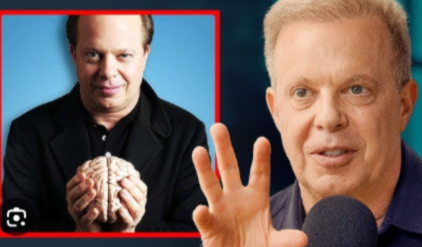Headline: Dr. Joe Dispenza Faces Scrutiny from U.S. Scientists Over Claims of Healing and Quantum Physics
In recent months, Dr. Joe Dispenza, a renowned author and speaker known for his teachings on the power of the mind and meditation, has come under increased scrutiny from groups of U.S. scientists. Dispenza, whose work explores the connection between neuroscience, quantum physics, and spiritual healing, has built a global following through his books, workshops, and retreats. However, his growing popularity has drawn criticism from members of the scientific community, particularly for what they argue is a misrepresentation of scientific concepts.
Several researchers and professionals in the fields of neuroscience and physics have expressed concerns about Dispenza’s methods, claiming that his blending of quantum mechanics with personal transformation and healing is not supported by rigorous scientific evidence. Dr. Sarah Hayes, a neuroscientist at a leading research institution, stated, “While it’s exciting to see people enthusiastic about improving their lives through mental practices, the way Dr. Dispenza uses terms like ‘quantum physics’ is overly simplified and often misapplied. These concepts, when taken out of context, can lead to misunderstandings about what science actually says.”
The core of the controversy lies in Dispenza’s assertion that the mind can directly influence the body’s health through meditation and focused thought. His bestselling books, such as “You Are the Placebo” and “Becoming Supernatural,” are filled with stories of individuals who claim to have healed from serious illnesses using these techniques. However, scientists argue that while the placebo effect and mind-body connection are real, there is insufficient peer-reviewed research to support the broader claims of spontaneous healing made by Dispenza and his followers.
Physicist Dr. James Cole emphasized the need for caution: “Quantum physics is a field with immense complexities, and to suggest that individuals can tap into quantum fields to manifest health or wealth oversimplifies decades of research. This kind of language risks misleading people about what is scientifically possible.”
Despite the criticisms, Dispenza remains undeterred. In a recent interview, he defended his work, stating that the results speak for themselves. “I’ve seen countless people transform their lives through these practices. Science is catching up, but we’re at the frontier of understanding human potential.”
While his teachings continue to resonate with thousands of followers, the scientific community remains divided. Some researchers acknowledge the potential benefits of meditation and positive thinking on mental and physical health but urge the public to differentiate between what is scientifically validated and what remains speculative.
As the debate continues, Dispenza’s influence shows no signs of waning. His global workshops remain in high demand, and his message of self-healing and transformation continues to attract new believers. Whether his methods will eventually gain wider scientific acceptance or continue to face resistance from established researchers remains to be seen.



